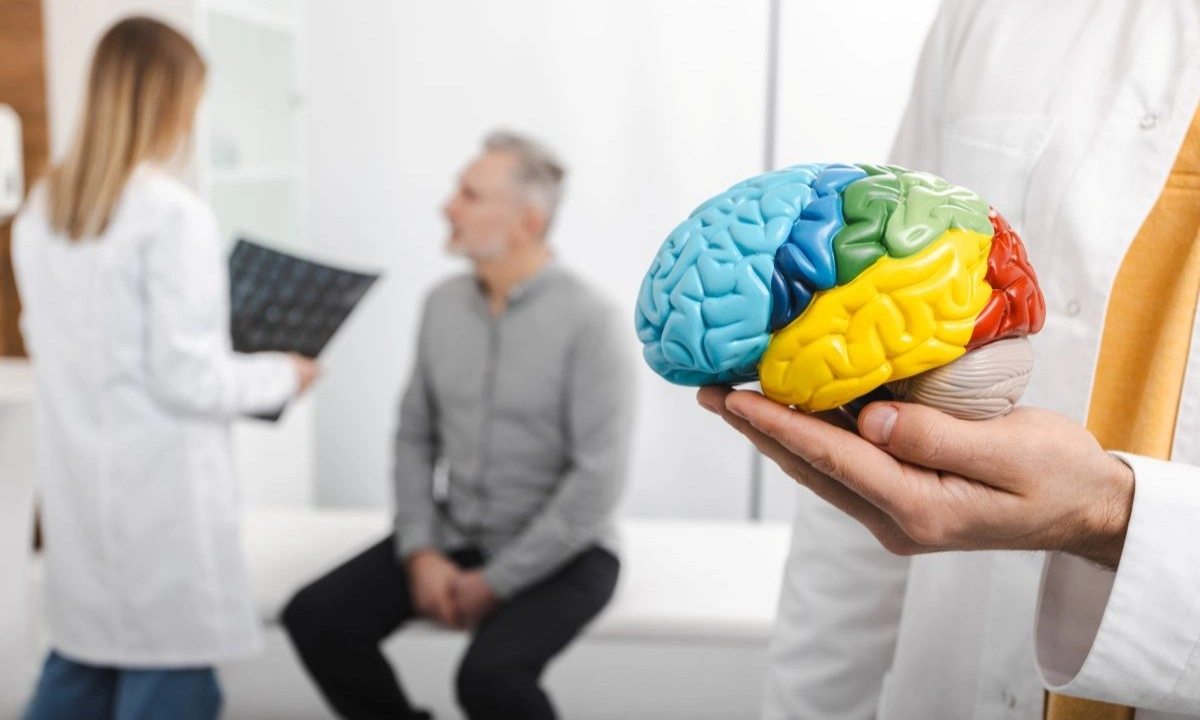When you’re dealing with memory issues or mood swings, it’s hard to know what’s going on. Is it stress? Depression? Or something more serious? Whether it’s psychiatric or neurocognitive affects what types of treatment are appropriate. This emphasizes how crucial it is to seek an accurate diagnosis.
What Is a Neurocognitive Disorder?

Neurocognitive disorders can lead to your brain’s thinking skills slowly breaking down. With mild neurocognitive disorder, you’ll notice changes. Maybe you forget things more often or need to write everything down. But you can still take care of yourself and handle daily life.
Major neurocognitive disorder (what most people call dementia) is more serious. It disrupts the ability to live independently. Early signs can include:
- Forgetting conversations you just had
- Losing track of time or where you are
- Struggling to find the right words
- Making bad decisions you normally wouldn’t
- Mood swings that seem out of character
What Causes Major Neurocognitive Disorder?
Alzheimer’s disease is the most common major neurocognitive disorder, followed by vascular dementia and brain injuries. Alzheimer’s disease is responsible for about 60–70% of dementia cases. Other causes include blood flow problems in the brain, genetics, or repeated head injuries, which can all damage brain cells over time.
What Counts as a Psychiatric Disease?
Psychiatric conditions have a different impact. They affect your emotions and behavior, but your basic thinking skills stay intact. The damage is more closely related to chemical imbalances, rather than brain tissue.
Psychiatric Condition List
Here are some common ones:
- Depression: Drains your mood, energy, and motivation
- Anxiety Disorders: Includes generalized anxiety and panic attacks
- ADHD: Makes focusing, sitting still, and controlling impulses tough
- Bipolar Disorder: Swinging between major highs and crushing lows
- PTSD: Triggered by traumatic experiences that won’t let go
- Insomnia: Sleep difficulties, affecting other areas of life
Identifying Neurocognitive and Psychiatric Conditions
So, what is the difference between a neurocognitive disorder and a psychiatric disorder? Doctors and nurse practitioners may look at several key factors:
| Aspect | Neurocognitive | Psychiatric |
|---|---|---|
| Primary Effect | Memory, thinking, reasoning | Mood, behavior, emotions |
| Onset Patterns | Gradual, progressive decline | Can be sudden or episodic |
| Brain Changes | Structural damage to brain tissue | Chemical imbalance, no structural damage |
| Reversibility | Usually progressive and not reversible | Often treatable and manageable |
| Diagnostic Tools | Cognitive tests, brain imaging, and neurological exams | Clinical interviews, symptom assessments, and behavioral evaluations |
When the Two Overlap
Although neurocognitive and psychiatric conditions affect different aspects of the brain, they can sometimes have intertwining effects. Severe depression can worsen memory so much that it looks like dementia (“pseudodementia”). Unlike neurocognitive conditions, this instance can be reversed with the right treatment.
Additionally, people with neurocognitive disorders often get depressed. It’s especially common with Parkinson’s or Huntington’s disease. As the brain changes, personality shifts might look like a mood disorder when it’s really a cognitive decline.
These conditions can look identical from the outside. This is why only comprehensive testing is essential.
Neurocognitive Test: How Specialists Assess

Modern cognitive testing gives medical care providers a clear picture of how your brain’s working. Here’s what the process typically looks like:
- Start with online or in-person screening tests
- Take memory and reasoning assessments
- Check your focus and concentration
- Get lab work to rule out other causes (like thyroid problems)
- Do brain imaging to see if there’s structural damage
- Go for full neuropsychological testing
Early testing provides more treatment options. You can slow things down before they get worse. It also gives you and your family time to plan.
Treatment Paths and Support Options
For major neurocognitive disorders, typical routes of care include:
- FDA-approved meds that can slow decline
- Cognitive rehab to improve your quality of life
- Home modifications to keep you safe
- Training for caregivers who need support
For psychiatric conditions, there is a range of therapies and habits:
- Cognitive-behavioral or EMDR therapy to reframe your thinking
- Medication management to rebalance brain chemistry
- Lifestyle changes that support mental health
When both types of conditions co-exist, a team approach is advisable. Coordinated care gets the most optimal results.
Signs You Should Seek Support
Don’t ignore these cognitive-related red flags:
- Sudden confusion or memory loss
- Getting lost in places you know well
- Bills pile up because you can’t manage
- Your personality’s completely different
- You can’t stop worrying about your memory
- Family keeps mentioning they’re concerned
- Work suffers because you can’t focus
Everyday Steps to Boost Brain Health

Whether you’re dealing with cognitive concerns or just want to protect your brain long-term, small daily habits make a real difference.
- Keep your brain busy: Learn new skills, do puzzles, read regularly, or take classes. Mental challenges build brain reserves.
- Take care of the basics: Get 7–9 hours of sleep, move your body weekly, eat brain-healthy foods, and manage stress.
- Stay connected: Spend time with loved ones, join community groups, and do activities you enjoy. Social connection protects both mental health and cognitive function.
Get Expert Evaluation and Care
Many cognitive symptoms come from treatable psychiatric issues. Depression, anxiety, and ADHD can all affect your memory and thinking. Cognitive testing cuts through the confusion. It shows whether you’re dealing with a mood issue or something that needs specialized care. Either way, it can guide you to the right treatment.
To learn more about our testing and treatment options, request an appointment today at Arcara Personalized Psychiatry.



